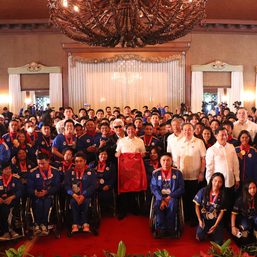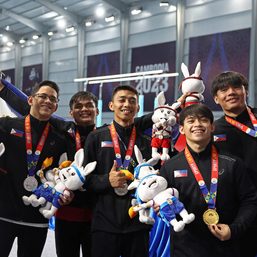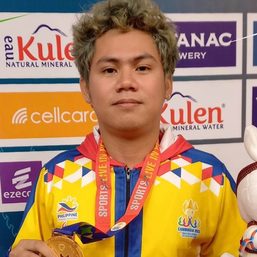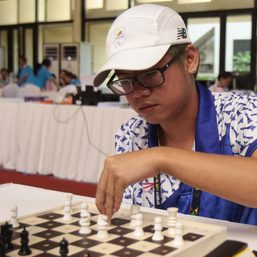SUMMARY
This is AI generated summarization, which may have errors. For context, always refer to the full article.

Incentives play a key role in our daily lives. We can induce people to act in one way or another by changing the benefits and costs that they face.
The government also uses various carrots and sticks whenever it designs and implements public policies. The big difference is that such policies, when gone wrong, can have unintended (even fatal) consequences for society.
Incentives can be a powerful lens by which we can understand and analyze many public issues. In what follows, we look at the incentives surrounding 3 issues facing the Duterte government: the drug war, the Kadamay housing issue, and Chinese foreign policy.
Incentives in the drug war
How did deaths being linked to the government’s war on drugs hit thousands, even reaching up to 9,000 people in just 10 months? By dangling a plethora of incentives along the way.
For one, the President said he used to kill drug suspects when he was mayor of Davao City. As president, he encouraged the Filipino people to do the same:
- To ordinary citizens, he said: “Kayong nandiyan sa neighborhood ninyo (those among you in your respective neighborhoods), feel free to call us, the police, or do it yourself if you have the gun, you have my support.”
- To the police, he said: “Do your duty and if in the process you kill 1,000 persons because you were doing your duty, I will protect you.”
- To OFWs in the Middle East, he said: “Tulungan mo akong patayin ang mga addict (help me kill addicts). Magpatay kayo ng addict araw-araw (kill addicts every day).”
Beyond mere words of encouragement, however, monetary incentives also seem to be involved.
In an insider report by anonymous senior police officials, cash rewards for killings are said to range from P10,000 per “troublemaker” (rapists, pickpockets, gang members, etc); P20,000 per street level drug pusher and user; P1 million per drug distributor, retailer, or wholesaler; and P5 million per drug lord.
Police officials are also said to impose quotas on “drug surrenderers” which the police go to great lengths to meet. Aside from the infamous “palit-ulo” scheme (where someone else is taken in exchange for the suspect), some policemen also round up random people in urban poor communities and force them to register as drug surrenderers (a documentary by National Geographic caught this on camera).
The ease by which people can be rounded up has incentivized some police into outright kidnapping for ransom. Just a few days ago, the Commission on Human Rights made a surprise inspection of Manila Police District Station 1 where they discovered a secret cell hidden behind a bookcase. There they found 12 suspected drug offenders allegedly held for ransom (reportedly from P40,000 to as much as P200,000).
The lists of drug surrenderers are also often turned into hit lists used by vigilantes. Documentaries by the BBC and the New York Times interviewed anonymous vigilante killers who admitted having direct links with the police, from whom they get these hit lists.
All in all, a cascade of perverse incentives explains how the President’s drug war has turned into a full-blown humanitarian crisis. To stop the killings, these incentives must be rooted out.
Incentives in the Kadamay housing issue
The President is also playing dangerously with incentives in the Kadamay housing issue.
In early March, around 6,000 families belonging to an urban poor group Kadamay occupied resettlement houses in Pandi, Bulacan. Such houses were meant for police and military personnel, but were left unoccupied for the longest time. President Duterte asked beneficiaries to give way to the Kadamay members “because they are poor.”
Recently, the National Housing Authority of Region 3 reported that collections from the Pandi housing sites have halved in March, following the occupation of Kadamay members. Current residents refused to pay the P200 monthly amortization after seeing that the Kadamay members were allowed to pay nothing. This, amid reports that legitimate residents could not freely access their own homes because of checkpoints set up by Kadamay members.
Almost as reprehensible as the occupation itself is the President’s reckless and ill-thought policy that sends the wrong message. By rewarding the unlawful occupation of socialized housing, not only will other militant groups be emboldened to conduct similar occupations nationwide, but legitimate homeowners will also lose any motivation to pay up.
Of course, we have to address the massive housing backlog of around 5.7 million units. But a policy that leads to a breakdown of property rights and rule of law is hardly the best way to go about it. The financial viability of other socialized housing projects could be compromised, making it even more difficult to reduce the housing backlog.

Incentives in Chinese foreign policy
Finally, incentives are also at play when it comes to our relations with China. But here, China is the one dangling the incentives, not President Duterte.
Following the President’s visit to Beijing last year, Chinese officials pledged around $6 billion in foreign aid plus $3 billion in loans to the Philippines, which the Duterte administration proudly said will help finance infrastructure development. This is the first time we will receive foreign aid from China.
At the same time, however, the President is projecting a decidedly soft stance when it comes to our sovereign claims in the disputed territories:
First, the President allowed a Chinese ship to survey Benham Rise and stay there for at least 3 months last year. Second, he said we cannot stop China from “doing its thing” and building facilities in Panatag Shoal. Third, he said “he can sell” islands in the West Philippine Sea if the Philippines becomes “very rich.”
In no way should President Duterte give the impression that we are trading away our sovereign claims for a few billion dollars of aid and loans. In the words of former foreign affairs secretary Albert del Rosario, such a submissive stance “puts us in a poor strategic position without the benefit of flexibility, especially if there is a need to negotiate.”
The ASEAN Summit is a great opportunity for the President to take a lead and show the world that our sovereign claims will not soften or yield, even as we receive a huge inflow of aid money and loans from China. However, the President already said he will not bring up the ruling of the international arbitral tribunal, claiming it’s a “non-issue.”
The power of incentives
Many social issues and public policies become clearer when viewed from the lens of incentives. In the same way that governments can dangle incentives to its citizens, governments can also dangle incentives to other governments.
As the congressional deliberations resume soon – and issues like the death penalty, lowering the age of criminal liability, and tax reform re-emerge in social discussions – our lawmakers should also bear in mind the direct and indirect effects their policies will have on the incentives people face. Otherwise, the laws they pass might only add to the nation’s problems, not its solutions.
The author is a PhD student and teaching fellow at the UP School of Economics. His views are independent of the views of his affiliations.
Add a comment
How does this make you feel?





There are no comments yet. Add your comment to start the conversation.